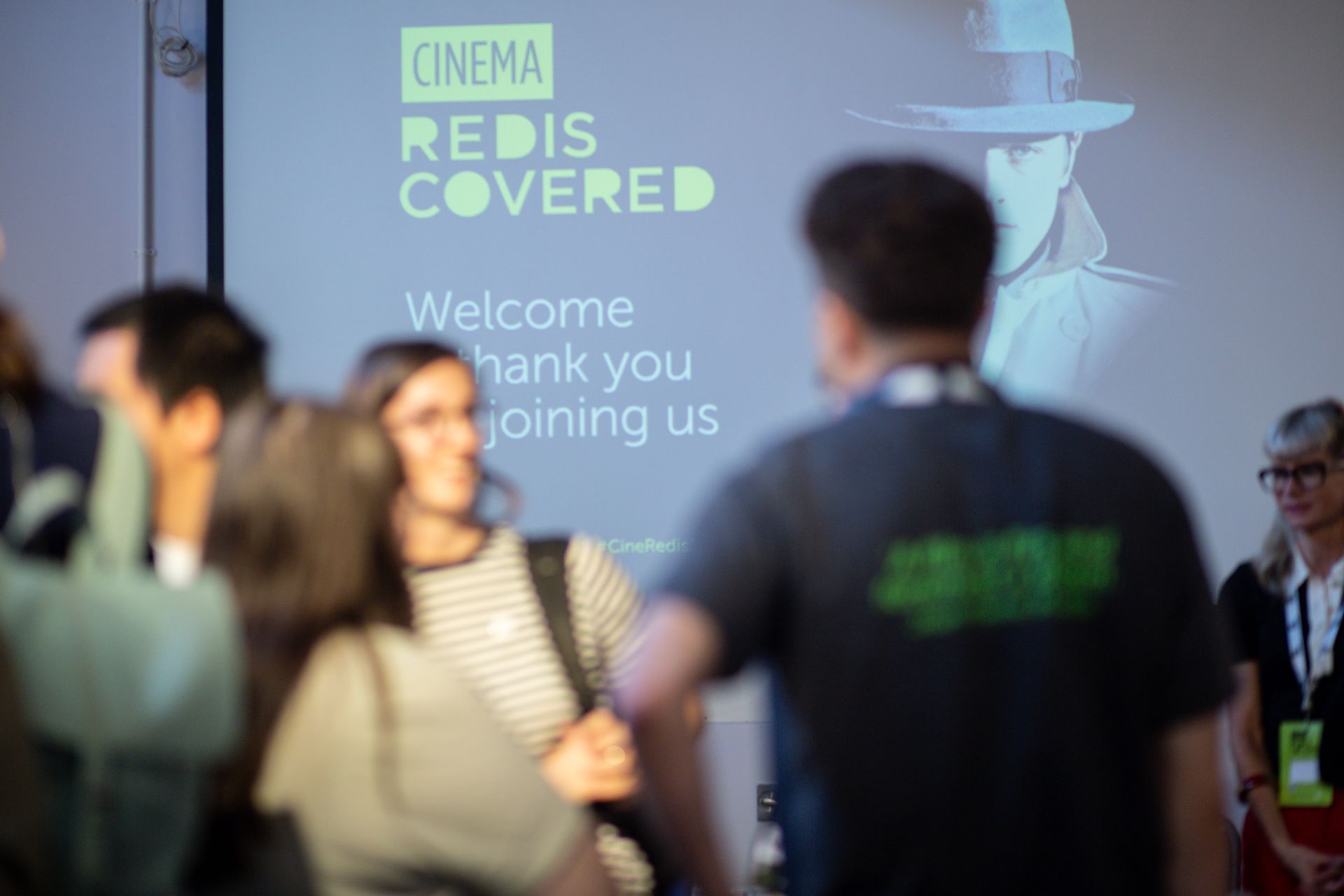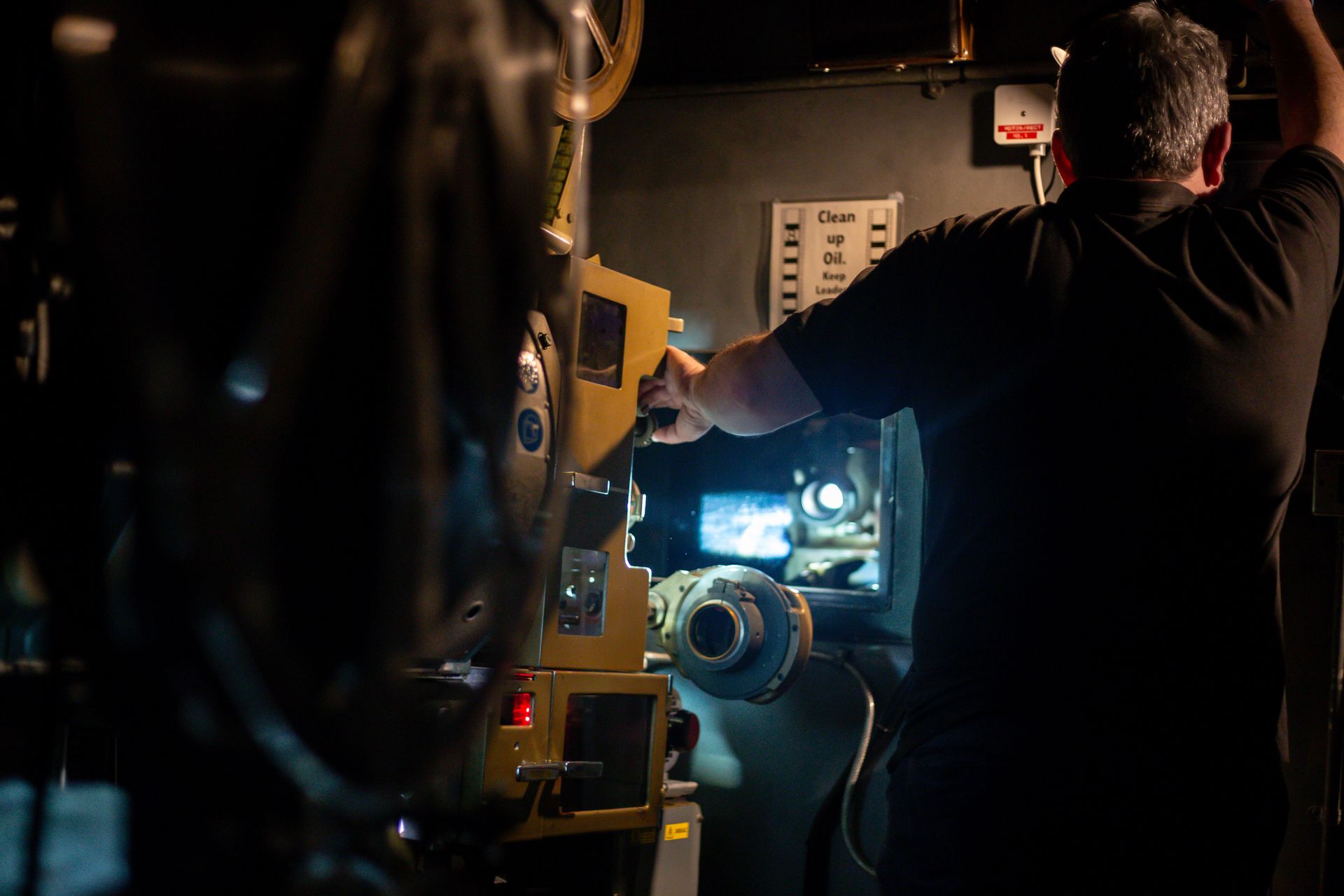In an era where streaming platforms have made every type of film ubiquitous, Bristol's iconic Watershed Cinema (UK) has not only survived but thrived, emerging stronger from the pandemic with innovative programming strategies and a renewed focus on the theatrical experience. In an exclusive interview with Patrick von Sychowski, Watershed's Mark Cosgrove (Founder & Co-curator of Cinema Rediscovered) and Maddy Probst (Head of Film, Film Hub South West & Watershed) share insights into how they've navigated the post-COVID landscape and tapped into unexpected audience trends.
Post-Pandemic Recovery: Reimagining the Theatrical Experience
The initial months after the pandemic were marked by what Cosgrove described as a period of "existential doubt" for the cinema industry. With audiences slow to return and streaming services having gained significant ground during lockdowns, many questioned whether theatrical exhibition would ever recover its former glory.
"Is cinema done because of the rise of streaming, because everything went online, because people spent so much time not going to the cinema?" Cosgrove recalls wondering. "The cinemas were closed, but people were watching more and more films. You just thought, is that it? Has the model completely changed?"
Yet the "Barbenheimer" phenomenon in 2023 marked a turning point, with audiences returning "in full force." What's particularly noteworthy is how Watershed adapted its approach to more commercial titles like "Barbie" – films they might have previously left to multiplex chains.
"Pre-COVID, Barbie wouldn't have been a film that Watershed would have screened or gotten behind because the commercial market would have taken care of it," Cosgrove explains. "But this time it was something we felt we really wanted to engage with, but do it in a distinctive way."
This distinctive approach has involved "eventising" screenings – transforming them into social experiences that extend beyond the film itself. For "Barbie," this meant turning their entire building pink and hosting a drag performance in the café bar. For A24's "Love Lies Bleeding," they partnered with a Bristol Butch bar to create games and activities that drew capacity crowds. Probst notes, “Watershed often gets really strong results on smaller titles because we're going that extra mile and creating a special experience.”
Programming "Longer and Thinner": A Strategic Shift
One of the most significant programming shifts has been what Cosgrove terms booking films "longer and thinner" – maintaining smaller arthouse titles in the program for extended periods, often with just one or two screenings per week.
"With smaller films, which are getting squeezed in the market with smaller profile and spending, we've found that audiences take a while to come to them," Cosgrove notes.
The most dramatic example was Wim Wenders' "Perfect Days," which Watershed kept running for an entire year with at least one screening every weekend. When they marked the film's one-year anniversary with a special "Perfect Day" weekend, all four screenings in their main cinema sold out, making it their highest-grossing film that weekend.
The Rise of Film Clubs and Community Partnerships
Another key development has been the emergence of specialised film clubs and academic partnerships that create dedicated audiences for challenging arthouse fare. Watershed's collaboration with the University of the West of England on the "Thought in Action" series, led by the philosophy department, has provided a platform for films that might otherwise struggle to find viewers.
"They're picking some of those smaller titles that are struggling to punch through, like 'On Falling,'" Probst explains. "These films are getting good exposure through those clubs."
Similarly, the "Latinas in Bristol Film Club" has focused on Latin American releases, building local word-of-mouth momentum that national marketing campaigns often fail to generate.
Gen Z and Millennials: Unexpected Champions of Repertory Cinema
Perhaps the most surprising trend highlighted by Probst and Cosgrove has been the strong attraction of younger audiences to repertory cinema – classic and restored films that are finding new life through digital platforms like Letterboxd and carefully curated theatrical presentations.
Cosgrove traces the roots of their repertory festival, Cinema Rediscovered, to observations he made 10-15 years ago when screenings of classics like "Once Upon a Time in the West" and "Seven Samurai" began drawing surprisingly young audiences.
This trend has accelerated dramatically in recent years. When Watershed screened Edward Yang's "Yi Yi" from 2000, they originally programmed it in a small theater, expecting 30-40 attendees. Instead, they had to move to their main cinema and drew 180 admissions – largely because the film had been included in a Letterboxd list of "25 Films to See Before 30."
Similarly, when they screened Wim Wenders' "Wings of Desire" – despite Cosgrove's initial skepticism about audience interest – it became their highest-grossing film that weekend.
Probst shared even more striking statistics: a recent Béla Tarr retrospective attracted an audience that was 33% aged 24 and under – particularly remarkable given that it ran during August's traditional blockbuster season. A Technicolor program featuring "The Umbrellas of Cherbourg" drew an audience that was 51% under 24.
"We're getting more confident with the rep programming," says Probst. "We've just finished a two-month Chantal Akerman retrospective, which was of scale for a venue outside of London... We're becoming bolder with rep year-round."

Cinema Rediscovered: From Local Festival to Industry Launchpad
Now entering its ninth year, Cinema Rediscovered has evolved from a small local festival into a significant industry event and theatrical launchpad for classic film reissues.
"Last year in our 8th edition, we had 15,000 admissions across the festival and the tour which reached 60 venues across the UK and Ireland," Probst reports, compared to around 3,000 admissions across just four venues in earlier editions.
Major distributors including Curzon, Park Circus, and StudioCanal now regularly use the festival to launch restored classics into theatrical release. Recent examples include "Paris, Texas" and "The Virgin Suicides." This year, they'll be presenting the 40th anniversary of "My Beautiful Laundrette" with director Stephen Frears in attendance before its re-release alongside a package titled "Against The Grain: 1980s British Cinema."
The festival has also developed an industry component that sold out last year with 100 attendees from distribution, sales, exhibition, and archive sectors. They're now introducing closed screenings for exhibitors of restorations planned for autumn release, transforming it into "a tiny market for UK rep exhibition and distribution."
Collaborative Curation: New Voices, New Discoveries
What distinguishes Cinema Rediscovered from many festivals is its collaborative, open approach to programming. Rather than relying on a single curatorial vision, the festival actively seeks input from diverse voices through open call initiatives such as "Other Ways of Seeing" supported by the BFI Audience Projects Fund, awarding National Lottery funding.
"The festival became a mechanism to open up the theatrical space," Probst explains. "We want the festival to be seen as something you can take part in and pitch into."
This approach has led to genuinely fresh discoveries. Lorena Pino, who began as a photographer and volunteer coordinator and is now the festival coordinator, brought attention to "El Cine Soy Yo," a Venezuelan restoration that hadn't received exposure at major European festivals. After premiering at Cinema Rediscovered, it was included in the touring program and has been screened at over 10 venues.
The festival has also launched "Pitch to Park Circus," inviting curators to create seasonal proposals from the distributor's catalog. The winning package is added to Park Circus's offerings and promoted to cinemas nationwide.

Beyond Digital: The Enduring Appeal of 35mm
Despite embracing digital platforms for audience development, Watershed has found that physical film formats still hold particular appeal – especially for younger audiences.
"We got a 35mm print of 'Nosferatu' [the Robert Eggers film] and also a DCP," Cosgrove notes. "The 35mm would regularly do better business and get a younger audience!"
This year's Cinema Rediscovered will open with a 35mm preservation print of "Absolute Beginners" from the BFI National Archive – a major selling point for the 1986 film that may soon in turn receive a 4K restoration release.
Looking Forward: A New Confidence
After weathering the pandemic storm, Watershed's team has found a renewed sense of purpose and ambition. The key lessons for other arthouse exhibitors include embracing local connections and community partnerships, being playful with programming and marketing, and having the confidence to program challenging work with conviction.
"What I've noticed with the team at Watershed is we're starting to take risks again," Probst concludes. "We're being bolder with our curation and more ambitious. That's exciting because all of that will translate to the audience. Our energy and ambition is connecting with audiences."
Far from signaling the death of theatrical exhibition, the pandemic experience has ultimately reinforced what makes cinema unique. As Cosgrove puts it, "Our USP is the building and the cinematic, theatrical experience... It's watching films, but in a very different way. Covid kind of ramped up that difference and uniqueness."
For the arthouse sector, perhaps the most encouraging revelation is Cosgrove's assertion that "film's past is its future" – a sentiment being validated by younger audiences who are discovering cinema history through new platforms but choosing to experience it in the traditional theatrical setting.
The 9th edition of Cinema Rediscovered runs from July 23-27, 2025 at Watershed Cinema and partner venues across Bristol.
The full Q&A with Maddy Probst and Mark Cosgrove will be published here this Friday.
The Revival of Arthouse Cinema: How Bristol's Watershed Is Leading the Way